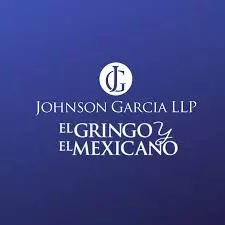The loss of a loved one is one of the most traumatic events in life, made even more catastrophic when another party is at fault for their death. A wrongful death claim is a civil case against someone who is responsible for the victim’s death. If you find yourself in this horrible situation, here are the most important things to know about wrongful death actions in Texas.
1. Texas has a wrongful death statute in place.
This important law allows the victim’s family or estate to sue for “wrongful act, neglect, carelessness, unskillfulness, or default” that results in an otherwise preventable death.
2. Wrongful death claims most commonly arise from negligence actions.
Essentially, a wrongful death claim may be filed where the wrongdoer engages in negligent or reckless conduct. Negligence cases involve fault liability: they do not necessarily require intent or malice on the part of the wrongdoer, only proof that they were at fault. To prove negligence, there must be a duty owed towards the victim, and that duty must have been breached by the wrongdoer. In addition, the party bringing the claim must have suffered damages as a direct result of the wrongdoer’s actions.
3. Actions for wrongful death may involve various areas of the law.
A wrongful death claim may arise in many ways. Some examples include a motor vehicle accident that results in death, a catastrophic construction accident, or a medical malpractice action that causes a patient to die. Though intent is not required in cases of negligence, an intentional act, such as the intent by the wrongdoer to commit murder, might also give rise to a wrongful death claim.
4. Wrongful death claims are resolved in civil court and may be heard by a jury.
Civil cases, including wrongful death, result from a dispute between two individuals or organizations. The party filing a claim may request that their wrongful death claim be heard by a jury, and the jurors will be able to answer questions of fact based on the evidence presented in the case. Note, however, that a corresponding criminal case might also arise from the death—for example, the wrongdoer in a fatal car accident might be separately charged with vehicular homicide.
5. Texas has a statute of limitations in place for wrongful death claims.
The statute of limitations sets the time period by which a claim must be brought in court. In Texas, wrongful death actions typically take place within two years of the deceased expiration.
6. Only certain people may file a claim for wrongful death.
Texas law does not allow just anyone to file a claim for wrongful death. To do so, the party filing the case must be a surviving spouse, child, or parent of the victim, or the victim’s personal representative. This includes both adult and minor surviving children, as well as both biological and legally adopted children.
7. The family or estate of the victim may recover monetary damages in these actions.
The purpose of a wrongful death claim is to recover the full value of the victim’s life. This means compensating the victim’s family or estate for their survivors’ losses. The survivors may recover damages for lost wages, or the loss of income the family will experience as a result of the victim’s death.
8. A victim does not need to have worked outside the home in order to recover for the wrongful death.
Although one major category of damages deals with lost wages, the family or estate may recover damages even if the victim did not work outside the home. For example, in the case of a stay-at-home spouse, wrongful death damages may include the economic benefits that the family had enjoyed from the victim’s work in the home.
9. In some cases, punitive damages may also be awarded.
These damages are also known as “exemplary” claims because their purpose is to punish and make an example out of the wrongdoer. Although punitive damages are not common, they may be awarded in cases of willful conduct or gross negligence.
10. A wrongful death claim may be brought in connection with other claims, such as “survival actions.”
Survival actions cover the damages that the victim incurred from the moment of the injury to the time of their death. Some examples of damages in survival actions include medical bills, and funeral and burial expenses.
How can we help?
Wrongful death claims are among some of the most complicated and detailed personal injury matters. We have over 30 years of combined personal injury experience, giving us a keen understanding of the accident settlement process.
We’re well-equipped to handle even the most complicated cases, including wrongful death matters. We are so committed to our client’s success that we won’t take payment unless you win. Contact us today or give us a call at 832-400-6130 to schedule a completely free consultation.


